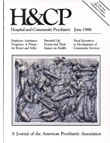Electroconvulsive Therapy for the Elderly: A Review
Abstract
Treatment of psychiatric disorders among the elderly is complicated by such factors as high incidence of medical illness and changes in drug metabolism; electroconvulsive therapy (ECT) is considered a reasonable treatment alternative for the elderly for several psychiatric syndromes. The authors review indications, complications, and precautions related to ECT for older patients. The primary indication is major depression; about 80 percent of elderly patients respond favorably. ECT appears less effective for depression secondary to dementia or somatization disorder. Although ECT is relatively safe for the elderly, up to one-third may experience a complication that interferes with treatment. Careful pre-ECT medical evaluation is essential, with special attention to cardiovascular factors and to concurrent medications.
Access content
To read the fulltext, please use one of the options below to sign in or purchase access.- Personal login
- Institutional Login
- Sign in via OpenAthens
- Register for access
-
Please login/register if you wish to pair your device and check access availability.
Not a subscriber?
PsychiatryOnline subscription options offer access to the DSM-5 library, books, journals, CME, and patient resources. This all-in-one virtual library provides psychiatrists and mental health professionals with key resources for diagnosis, treatment, research, and professional development.
Need more help? PsychiatryOnline Customer Service may be reached by emailing [email protected] or by calling 800-368-5777 (in the U.S.) or 703-907-7322 (outside the U.S.).



